April 19, 2025 | 00:57 GMT +7
April 19, 2025 | 00:57 GMT +7
Hotline: 0913.378.918
April 19, 2025 | 00:57 GMT +7
Hotline: 0913.378.918
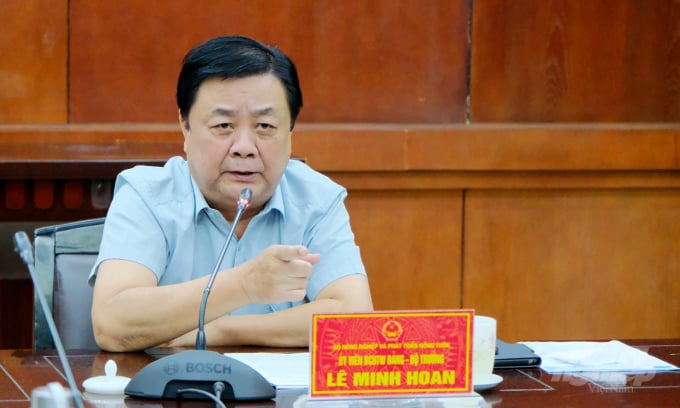
Minister of Agriculture and Rural Development Le Minh Hoan requested to promote the development of collective and cooperative economy. Photo: Bao Thang.
Developing collective and cooperative economy is always a matter of great concern to the Minister of Agriculture and Rural Development Le Minh Hoan. He said that it is necessary to have radical and long-term oriented solutions after listening to the Department of Cooperatives and Rural Development stating 5 main limitations in current cooperatives, which includes: Small production scale, small number of personnel; Expecting to enjoy the State’s support policy; Limited management and administration skills of the staff; Lack of business capital, low asset value, difficult access to credit; And lastly, lack of information on the market and lack of production, preliminary processing, product preservation technologies, as well as weak trade promotion and advertising capacity.
As stated by the head of the agricultural industry, agricultural cooperatives in Vietnam are experiencing a hot development, but mainly in numbers. According to the Department of Cooperatives and Rural Development, by the end of June 2021, Vietnam has received an increase of 6,088 cooperatives compared to 4 years ago (equivalent to 52%). This rate is over 3 times higher than during the 2012 - 2016 period.
The number of agricultural co-ops participating associated with businesses in commodity production, harvesting, processing and consumption currently remains at 22.7%. Despite having 17,776 units across the country, the cooperatives only own about 30% of the nearly 5,000 OCOP products. The number of agricultural cooperatives applying high technology is less than 10%.
"However, looking back at the problem, it can be seen that people are easily discouraged if the income from the cooperative is too little or there is no benefit from joining the groups. We need to change so that someday in the distant future, people can see abundant benefits from cooperative, so much that they are even willing to obtain payday loans in order to meet the membership criteria", said Minister Le Minh Hoan.
In order for farmers to be "ready for payday loans" as the Minister said, Deputy Minister of Agriculture and Rural Development Tran Thanh Nam stated that the Department of Cooperatives and Rural Development (DCRD), Institute of Policy and Strategy for Agriculture and Rural Development (IPSARD), the National Agricultural Extension Center (NAEC), the two academies of Agricultural and Rural Development Management Staff, and related units need to clarify two issues: One, highlight the benefits of people when joining the cooperative; and two, specifically clarify the cooperative model’s characteristics.
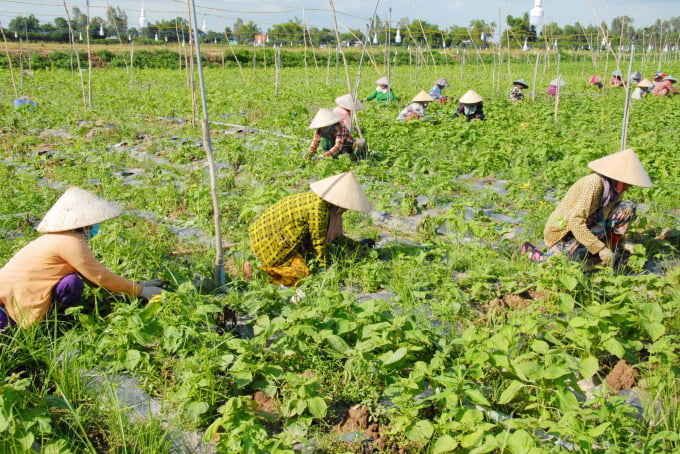
What needs to be done now is for all to recognize: The cooperative is a social welfare organization in the countryside. Photo: Le Hoang Vu.
"There is nothing better than we on our own being able to develop a separate market for cooperatives like the way we did with OCOP products. The agricultural industry must see this as a revolution in mindset, set foot in the fields, in the barns, struggle with the same things that make farmers suffer, understand their thoughts and problems, instead of issuing resolutions in halls and meeting rooms", the Minister elaborated.
Similar to raw material areas, in the past cooperatives often emphasized the criteria of revenue, profit, output, and productivity. The agricultural "commander" advised that this way of thinking should be discarded. Instead of focusing on "profit", the head of the cooperative should pay attention to "benefits". That is, in addition to economic value, cooperatives should also bring welfare, livelihoods, and long-term investment options - things that are difficult for farmers to get access outside of the cooperative.
“The ability to apply technology, granting planting area codes, and farming procedures that meet VietGAP and GlobalGAP standards should have its evaluation index increased. The more stars cooperatives achieve, the more opportunities they can have to access incentives", said the Minister.
The incentives, according to the Minister, are credit policies, agricultural insurance, or attending promotion conferences with consumer businesses, which will bring a lot of economic benefits to the household.
In agreement with the Minister's view of "making co-op establishment a reflex for farmers", Deputy Minister Tran Thanh Nam proposed a plan to develop a separate budget source to support cooperatives. In his opinion, what the cooperative needs most is not capital but appropriate policies to maximize internal resources.
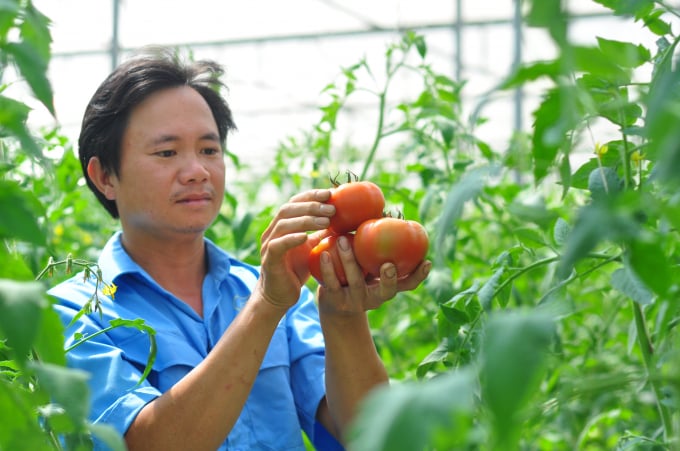
High-tech tomato production in An Phu Cooperative (Duc Trong, Lam Dong). Photo: Minh Hau.
With a large team closely following facilities, NAEC believes that it can play a part in building the collective economy. Director Le Quoc Thanh said: "The form of cooperative organization has always maintained its development momentum in the raw material areas with regional links and set sight on processing factories. NAEC is ready to participate in the common strategy and join forces with other MARD units”.
The immediate solution, according to the advice of the DCRD, is to divide the action plan into two groups.
The first group are general measures including coordination with ministries and branches under Central along with localities to implement Decision No. 1804/QD-TTg, and programs related to raw material areas, digital transformation, improve climate change adaptive capacity.
The second group is to develop a specific communication plan associated with media units such as Vietnam Agriculture Newspaper. In addition, the MARD will instruct affiliated organizations to compile training materials for cooperatives, pilot community agricultural extension groups, and cooperate with institutions, training facilities and vocational schools.
Translated by Samuel Pham

(VAN) During the working session with Deputy Minister Le Cong Thanh, Professor Francesco Corvaro, Italian Climate Change Envoy, reaffirmed Italy's commitment to supporting Vietnam in climate change response.

(VAN) After the merger, key leadership personnel of the provinces must consult with the General Secretary, key leaders, and the Standing Secretariat.
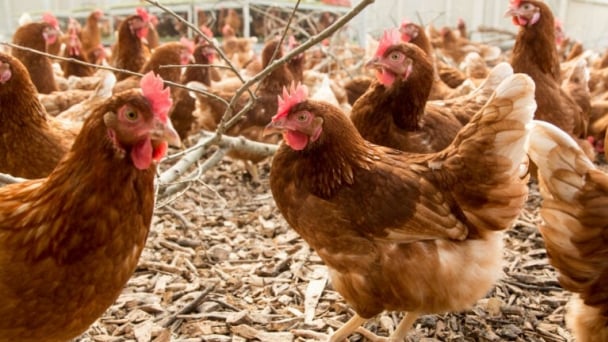
(VAN) The latest Business Benchmark on Farm Animal Welfare (BBFAW) reveals steady progress on farm animal welfare across the global food industry.

(VAN) Green credit is a financial policy that effectively supports environmentally friendly projects and activities today.
/2025/04/09/1049-2-165919_630.jpg)
(VAN) With a revenue of less than VND 30 billion/year, packaging producers are exempted from EPR liability under Decree No. 05/2025 newly issued.
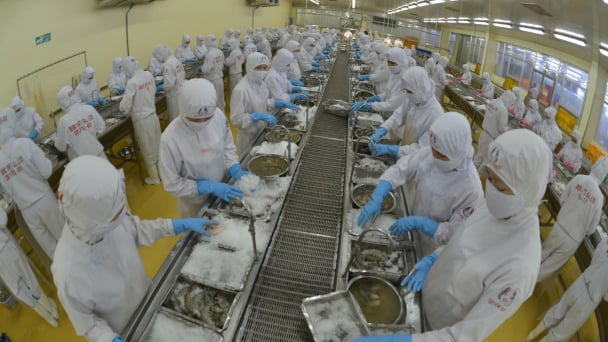
(VAN) Ministry of Agriculture and Environment has issued an Action Plan for sector's development in the coming period, aiming for a growth rate of 4% or higher and an export turnover of USD 65 billion.
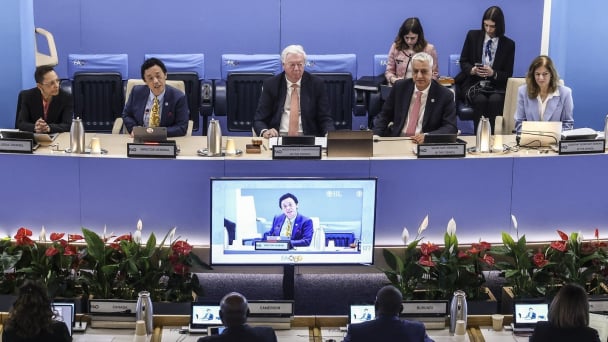
(VAN) The 177th Session of the FAO Council opened on Monday at the Organization’s headquarters in Rome.